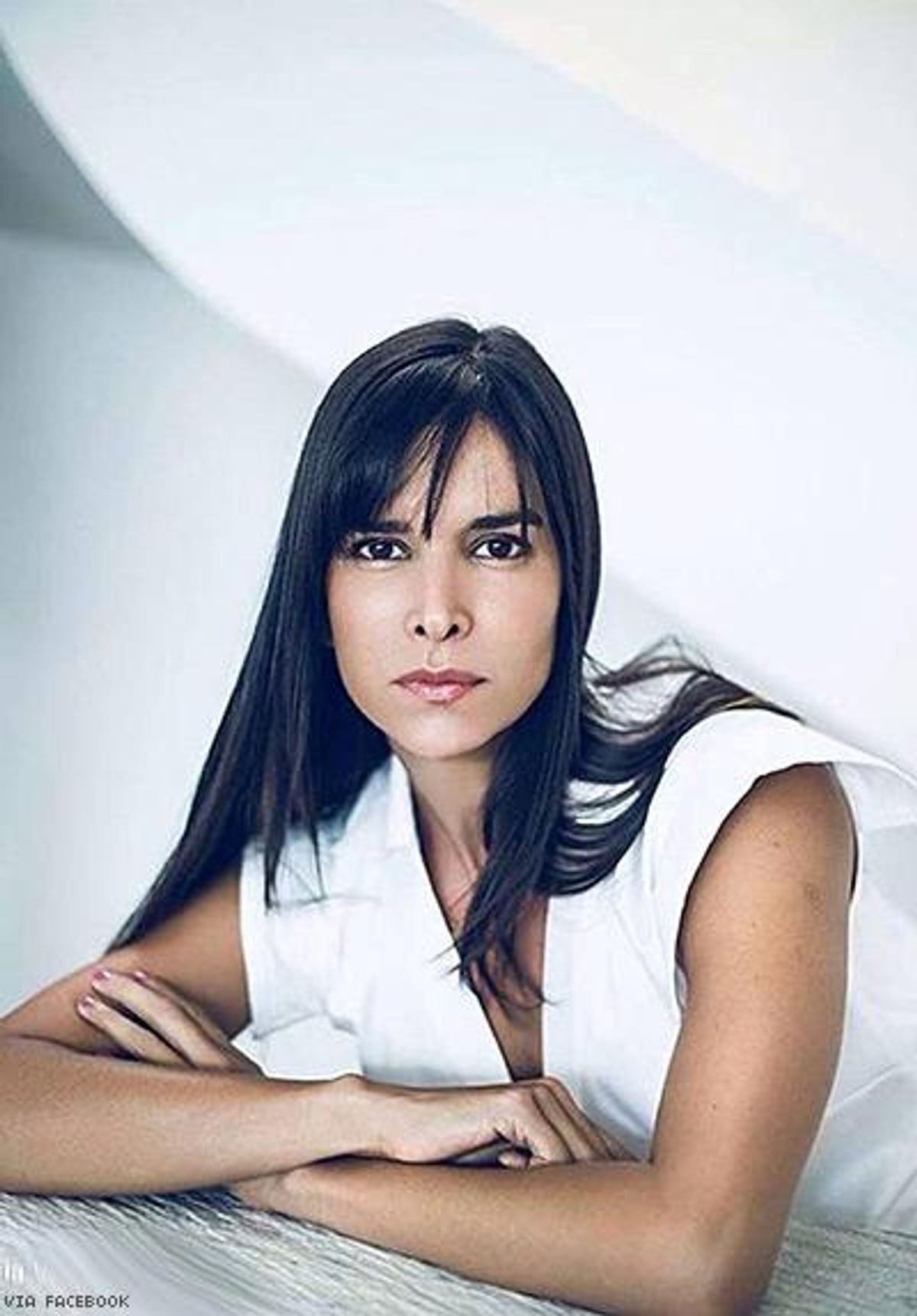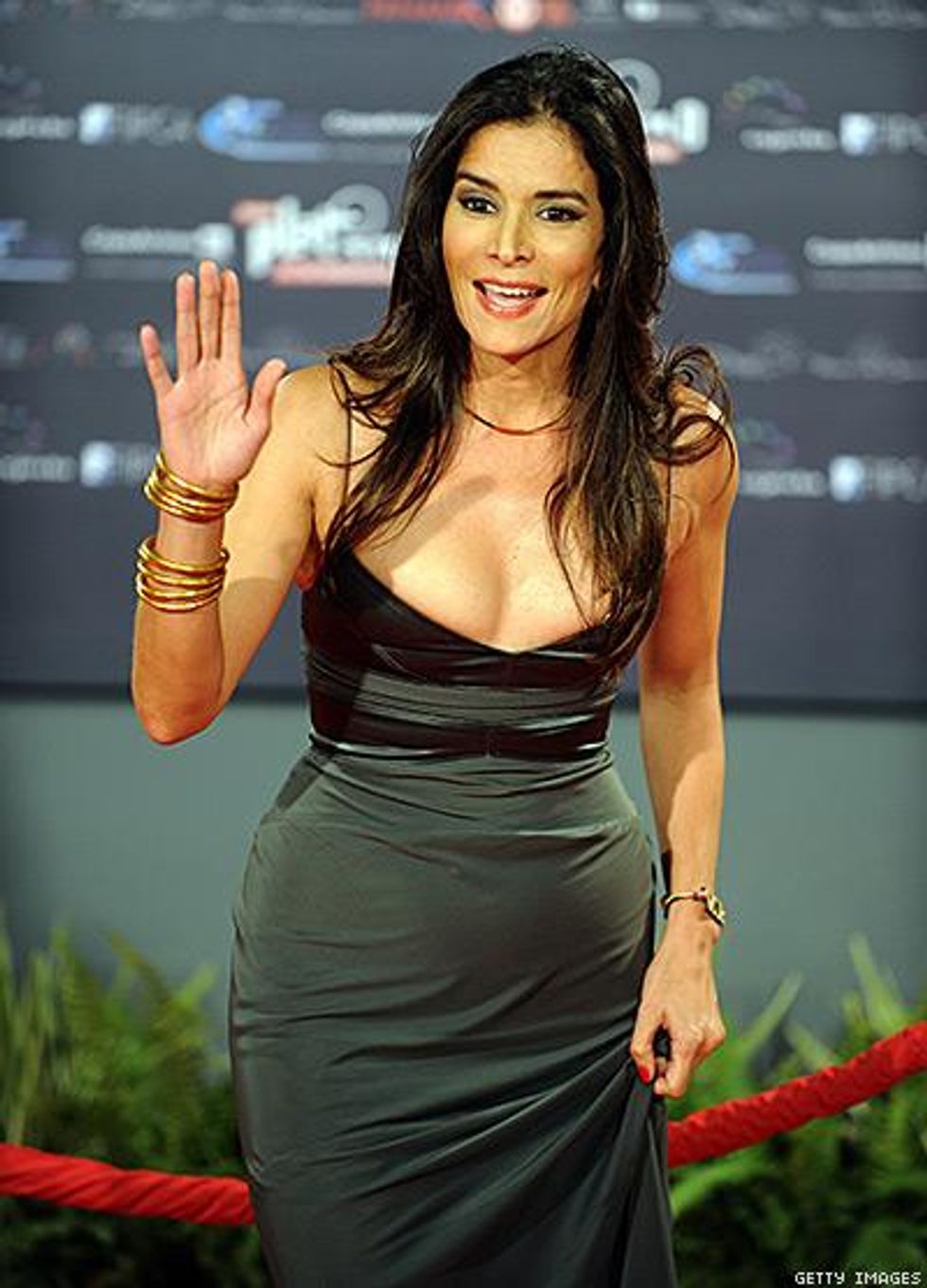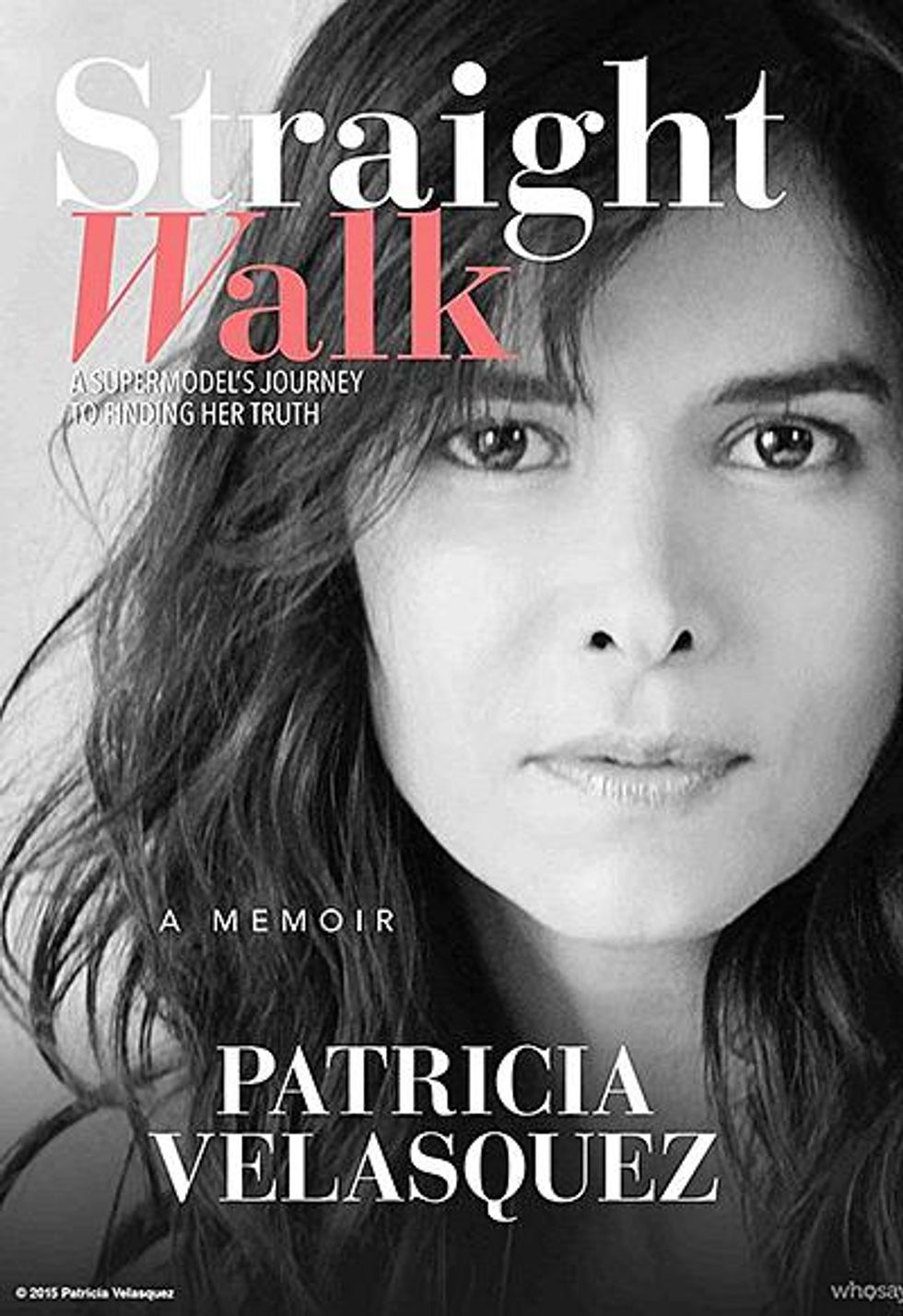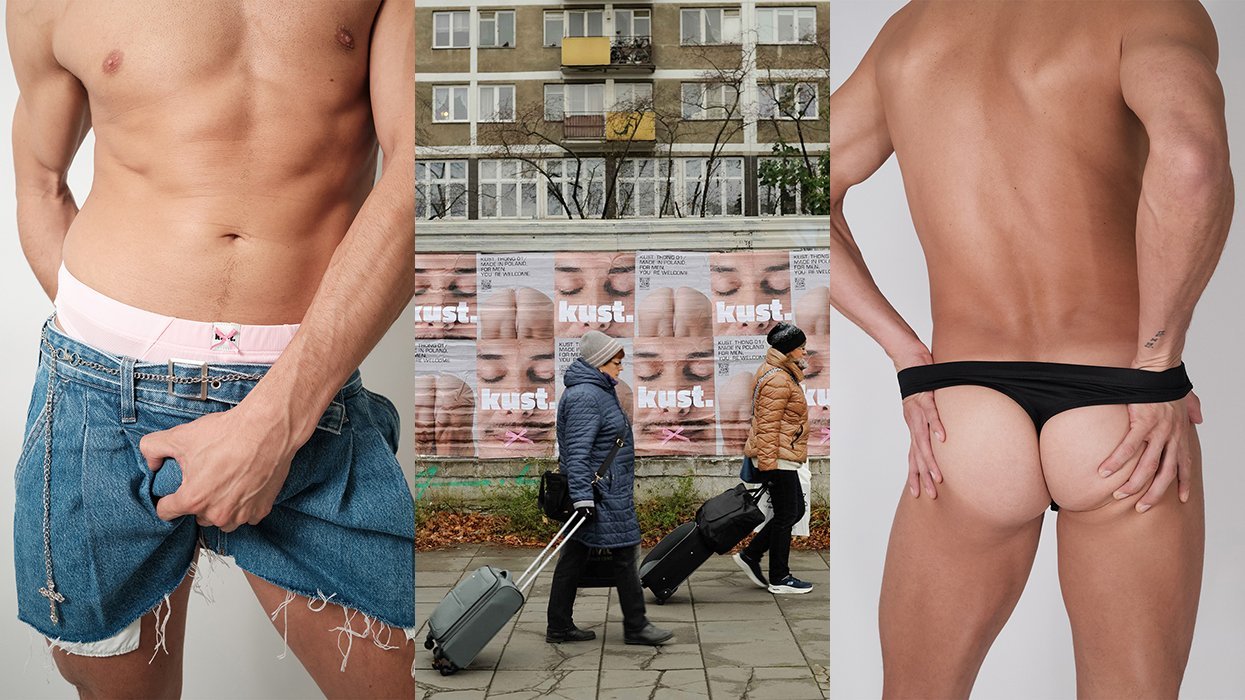Patricia Velasquez was anxious in the final days before Y2K. The world was about to end. The impending date would crash essential computer systems throughout the world, bringing about a global apocalypse - or at least that's what thousands of people believed. Yet, Velasquez was carrying a heavier weight on her shoulders - how to live an open and authentic life.
It consumed her while in Paris, getting glammed up for what would become known as one of Jean Paul Gaultier's most wild and memorable fashion shows, but in the seconds before she stepped out onto the runway, she had a moment of realization.
"As I sat there getting ready to walk, I was feeling this great sense of pride thinking about my journey to this moment, the only Latina in this massive show, excited to be part of something so amazing." Velasquez writes in her memoir Straight Walk.
Gaultier's approach to his art inspired her because his work was "so out there, yet so authentic" and in that moment she realized she could live the same way. She stepped out on stage a changed woman, knowing she would soon fly to Venezuela and finally come out as a lesbian to her family, and it made her feel truly "beautiful" for the first time.
"It didn't matter how many beautiful Chanel dresses they were putting on me or how much success I was having as a model, I felt uglier every day," Velasquez says, because she was lying about who she was.
Days later, as she sat on the couch next to her mother in Venezuela, Velasquez took a deep breath and blurted out the words, "Mama, it's true. I am gay."

The model had prepared for the worst, having an ambulance waiting downstairs in case the news induced a heart attack. However, what happened next was an even bigger surprise. As her mother held her hand she said, "My poor daughter, I can only imagine how hard it must have been for you all these years -- all these years trying to tell me something and not being able to do it."
She says it was the first time she experienced "true unconditional love" because her mother thought of her daughter's emotional needs in that moment "before she thought of her own feelings."
Her mother's reaction was a huge relief for Velasquez, though she admits her years of struggle did have one positive side effect. "My professional successes compensated for my being gay, because being gay meant I wasn't good enough. It made me feel like I had to work harder," says Velasquez.
That work ethic led Velasquez to cross paths with some of the biggest names in fashion such as Andre Leon Talley, Jean Paul Gaultier, Isaac Mizrahi, and Karl Lagerfeld, who each helped propel her career.
However it's Lagerfeld she credits with planting the seed of change that sprouted the night she stepped on that runway fully accepting herself in Paris at Gaultier's show. "Karl was the first person that I met that was truly successful and he was truly successful by doing what he wanted to do, which was his art," she says. "To meet someone who went for his dreams and achieved them -- there was no limit in his mind of what he wanted to do -- that for me was such a big inspiration."
Velasquez's personal metamorphosis moved her to share her story in hopes of encouraging others to accept themselves. She wrote her memoir Straight Walk detailing her journey out of the closet and beyond. The book was released in February to rave reviews with many readers praising the model for her bravery to come out publicly. Originally written in English, the memoir is being translated into Spanish by Velasquez - a task she says has brought with it unforeseen obstacles.
Because Spanish is her native language, translating the book makes her self-conscious in a way the English language version never did. This is partly because her mother doesn't speak or read English, and though she is out to her family, some of the stories included in the book are foreign to her mother.

"In English it just comes out freely and in Spanish I'm being much more careful about each word that's being used. English is very, very direct and in Spanish you have 10 times more options to write the same thing and it might still sound or mean something different," Velasquez says, noting the translation feels like a second coming out.
Nevertheless, she says her discomfort won't deter her from her goal. "It's all worth it, if I can inspire others. Even if it's just one person," she says. "I want to at least start a dialogue about being Latina and gay. The tide is changing. It's time to take action, specifically in the Latin communities, which have long avoided the topic."
Velasquez hopes young Latina women will realize the importance of owning their identity, whatever that identity may be, and avoid the agony she experienced from hiding her sexuality.
"If you are in a situation like I was or any situation that doesn't allow you to be who you think you are, then I'm going to ask you to just get the courage, be strong, and make sure you fight for your dreams," she says. "Because if you are not truthful to who you are, you are never really truly going to be able to achieve happiness and therefore you're not going to make anyone happy around you."



















































































